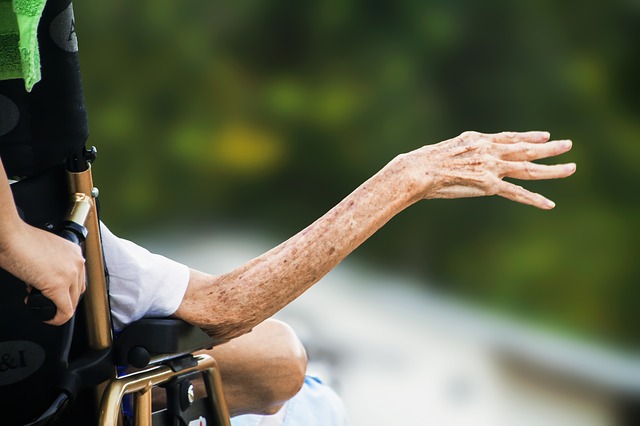
For many, the term “abuse” is synonymous with child abuse and domestic violence of a partner. What often doesn’t come to mind right away is another, less commonly discussed form – abuse of the elderly and vulnerable adults. However, while this form of abuse gets very little press, it is apparently a growing problem in Michigan.
The Adult Protective Services is the office of the Michigan Department of Health and Human Services (DHHS) tasked with the protection of vulnerable adults. According to statistics they recently provided, reported instances of elder abuse have more than doubled in just a few years here in Michigan. This has given rise to a number of concerns among law enforcement officials and senior citizen advocates.
Adult abuse takes many forms, from financial exploitation or neglect, to physical and even sexual abuse. However, while counties across Michigan only tend to prosecute a handful of cases in the average year, those cases span the full spectrum of crimes from assault and battery, to home invasion and burglary. In most cases, the crimes were intentional, but in some instances, the accused did not even realize that what they were doing was against the law.
For this reason, we would like to provide our readers with a comprehensive list of exactly what constitutes elder and vulnerable adult abuse in Michigan. By taking note of the situations that tend to occur as a result of these crimes, more situations of elder abuse can be identified. Also, for those who work with and care for the elderly, this list will help them identify exactly what is legal, and what is not so that they can choose to act accordingly.
Physical / Sexual Abuse:
While physical abuse is sometimes the easiest to spot and to prove, sexual abuse can be the hardest, as the elderly are sometimes unable to explain what has happened to them due to diminished cognitive function or for those who are aware, extreme shame. However, instances of unexplained sexually transmitted diseases can indicate sexual abuse.
Physical abuse is more common and also easier to identify. Severe bruising, bone fractures, wounds that defy explanation, like burns and lacerations, can all be signs of physical abuse. Take note, however, that the bodies of the elderly are often very frail. They bruise easily and brittle bones break under the slightest pressure. Physical injuries are not always signs of abuse.
Psychological / Emotional Abuse:
When an elderly person undergoes a distinct change in their behavior or level of alertness that a doctor is not able to attribute to dementia or some other medical cause, this is a possible symptom of psychological abuse. When a caregiver isolates an elderly person, refusing visitors or outside contact, or is overly controlling of finances or personal freedoms, this may indicate a possibly abusive situation. Be aware that isolation is sometimes medically necessary and does not always constitute abuse.
Neglect:
In this situation the vulnerable adult is not being properly cared for and their basic daily needs are not being met. A lack of sufficient food, clean clothing that is seasonally appropriate, and basic hygiene can be good indicators of neglect by a caregiver. Also a filthy home, or the victim not having access to necessary medical aids like hearing aids, a walker, a wheelchair or glasses.
Another sign is untreated or rapidly developing bed sores can indicate neglect. While the name “bed sores” may sound innocuous, the reality is a very severe wound that begins at bone level and results in decaying flesh and extreme pain. However, do note that caring for very demanding elderly patients can be very taxing. When that care falls to family members with no help and few resources, sometimes the result is overwhelmed people who can’t keep up with the demands placed on them. As a result, an unkempt home and a disgruntled older person should not automatically be seen as a sign of neglect.
Financial Abuse / Exploitation:
In these situations an elderly person or vulnerable adult may be coerced or threatened into signing property transfer papers, creating a new will with a new beneficiary, or simply writing out substantial checks to a certain individual on a regular basis. If a caregiver has control of an elderly person’s money but their daily needs are not being properly met, or the elderly person is not able to afford basic amenities even though they should be in a position of financial comfort, are good indicators of financial abuse.
However, caring for ailing people can be costly. Medications and other health needs are often very expensive. A caregiver having access to an elderly person’s finances is not an immediate cause for concern, as that money is needed to provide adequate care.
We hope this list has been helpful and informative for you. Remember that if you are witness to actual abuse, you are required to report it to the correct authorities. However, please be certain that you are making an accurate assessment of a situation before you make allegations of abuse against a caregiver. Sometimes situations are not what they appear to be, and innocent people have been slandered because of someone else’s mistake.
